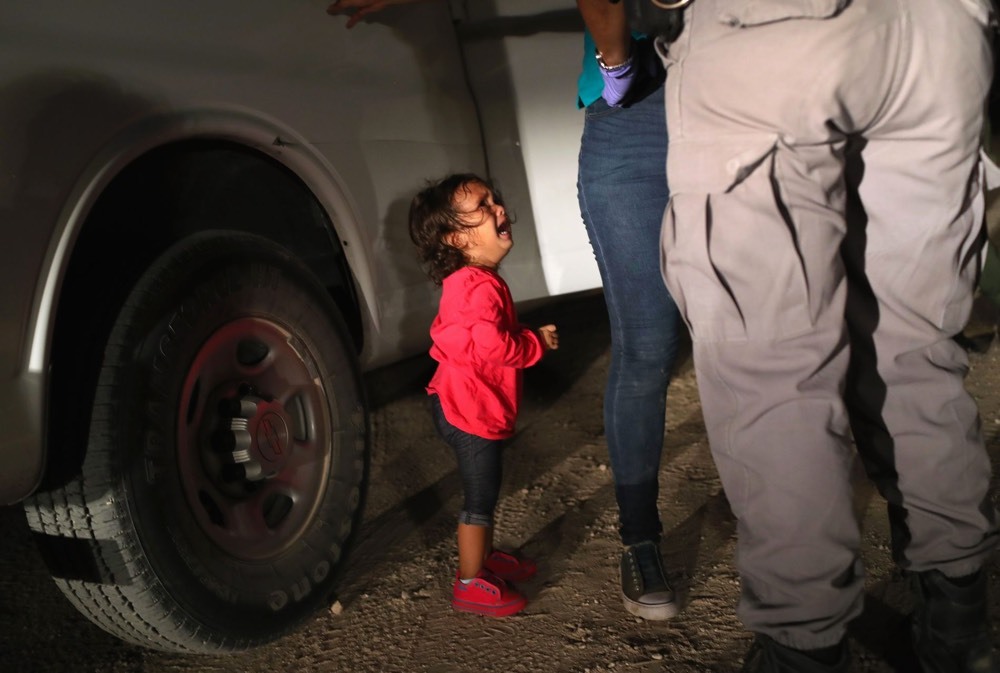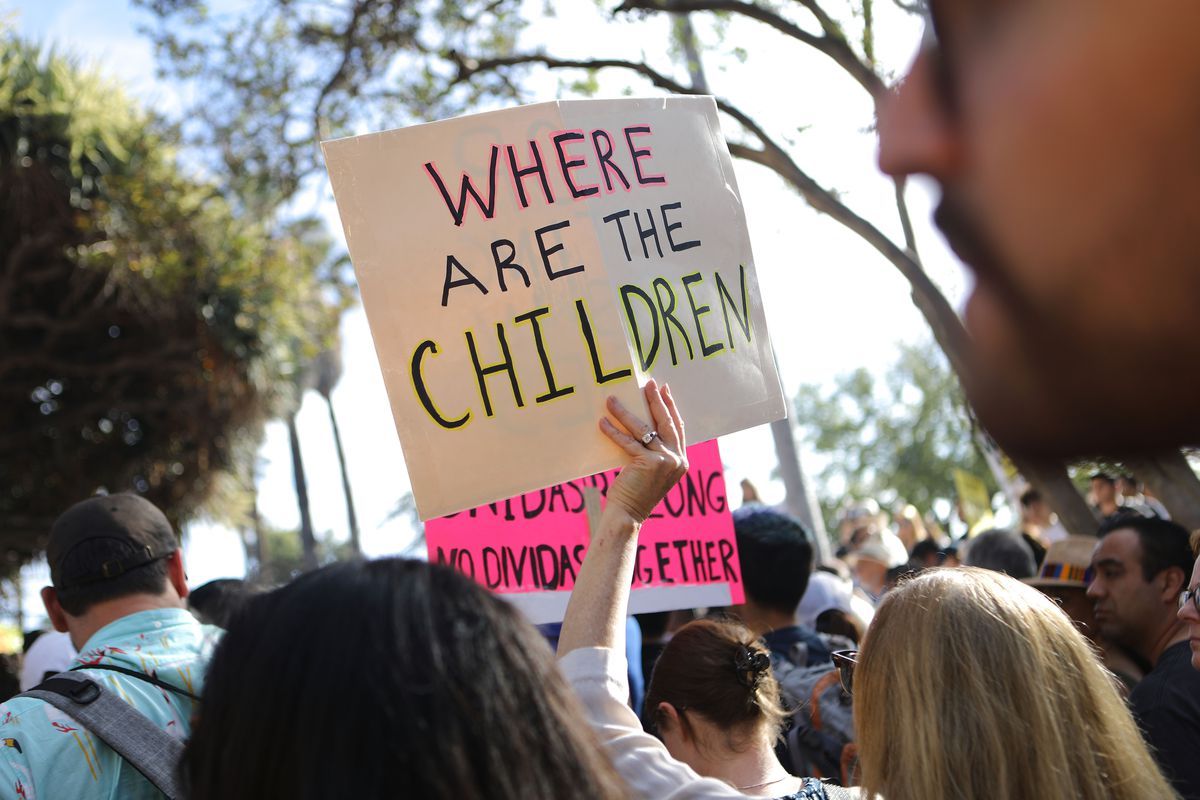“When I was in school I had to walk 12 miles uphill both ways in the snow.” That saying was supposed to let students fortunate enough to have a ride to school know that we had it easy. If we thought we had it rough, this was a reminder that we actually didn’t. If we were to walk a mile in their shoes (feet in this case), we would adjust our attitude. Those old folks recognized what I’ve come to believe is a profound truth. If we imagine ourselves walking in someone else’s shoes – compassion, not judgment becomes our stance toward the other.
In the last several weeks there has been a great deal of discussion about what’s been happening at the Mexican border. It’s been refreshing to see the conversation about children being separated from their parents be mostly about how we can help them. People have rallied to aid them by setting up funds to get them legal representation, marching in protest, and appealing to their representatives to help. Many pastors and politicians on both sides of the aisle have spoken out against this policy of taking children from the arms of their parents (this includes pastors who are a part of the President’s Spiritual Advisory Board). It’s been nice to see that there is a “too far” for staunch supporters of this Administration. I’ve yet to see anyone be overtly callous towards migrant families being separated from one another at border, but I have noticed a bit of a disturbing trend.
We all have experience with children fighting, either as a parent breaking up fights or as children ourselves. Inevitably when the fight is broken up and consequence is being handed out, one or both of the guilty kids will say the other one “started it”. It’s a childish thing to say, and it falls to every parent to use that moment to teach their children that “two wrongs don’t make one right”. I’ve noticed that in the midst of people expressing both outrage and good-will, there are others who feel it’s important that we all know who started this practice. There are people staring at images like…

who seem to believe that the most important thing to be noted is that the Obama’s and the Clinton’s “started it”. I suppose knowing what political party is to blame is helpful in political conversations. I imagine it even has some relevance to who we should vote for in upcoming elections, but it has zero relevance on what we should be doing right now. We should be careful as a people not to treat human rights issues as partisan issues.
Pause for a moment to imagine how it would feel to flee your home country to seek asylum in a foreign land only to be detained and separated from your small children at the border. How comforting would facts about MS13 and smugglers or understanding whose Administration is responsible for the condition you now find yourself in be? Would you not desperately want someone to show compassion toward you and your little ones? This is the situation for TWENTY-FIVE HUNDRED migrants at the Southern border. Prior to the President signing an executive order today, it was estimated that TWENTY THOUSAND migrant children would’ve been in the care of the DHHS by August 1st if something would not have changed. The executive order does not reunite parents with their children who were already separated. There is still work to be done, but this was a crisis that human beings responded to with compassion and righteous indignation. Here is a link to join in their efforts. People stood up and demanded something be done, and the outcry of the people lead to action from the President.

People with and without religious affiliation tapped into a compassion that is a part of our DNA as human beings. Thousands of years ago ancient writers wrote about the affect religion should have on society.
James, who is considered by many Bible scholars to be the leader of the early church, wrote in his book that “pure religion” is caring for orphans and widows. Jesus, when pressed about the greatest commandment, cited loving our neighbors as we love ourselves from the Torah. As did the Apostle Paul. The ancient holy writings are full of admonishments for human beings to be gracious and compassionate toward foreigners. Believing in a Divine Creator should naturally be followed by compassion for all human beings regardless of their race or country of origin.
I pray that as we continue to wrestle with the extremely complex political and social issues we are facing as a Nation, that we do so with a greater since of our humanity and not our political affiliation. Conversations that center around humanity put the focus on what we have in common and allow us to think through humane responses to the issues in our society. If we can learn to lead with grace and compassion for others, we tend to fall on the same side of most arguments no matter how complex. Something truly spiritual happens when we take a moment and imagine life in “their” shoes.
Whose shoes do you have trouble imagining yourself in?
Have you taken a stance that would be different if you were in “their” shoes?

